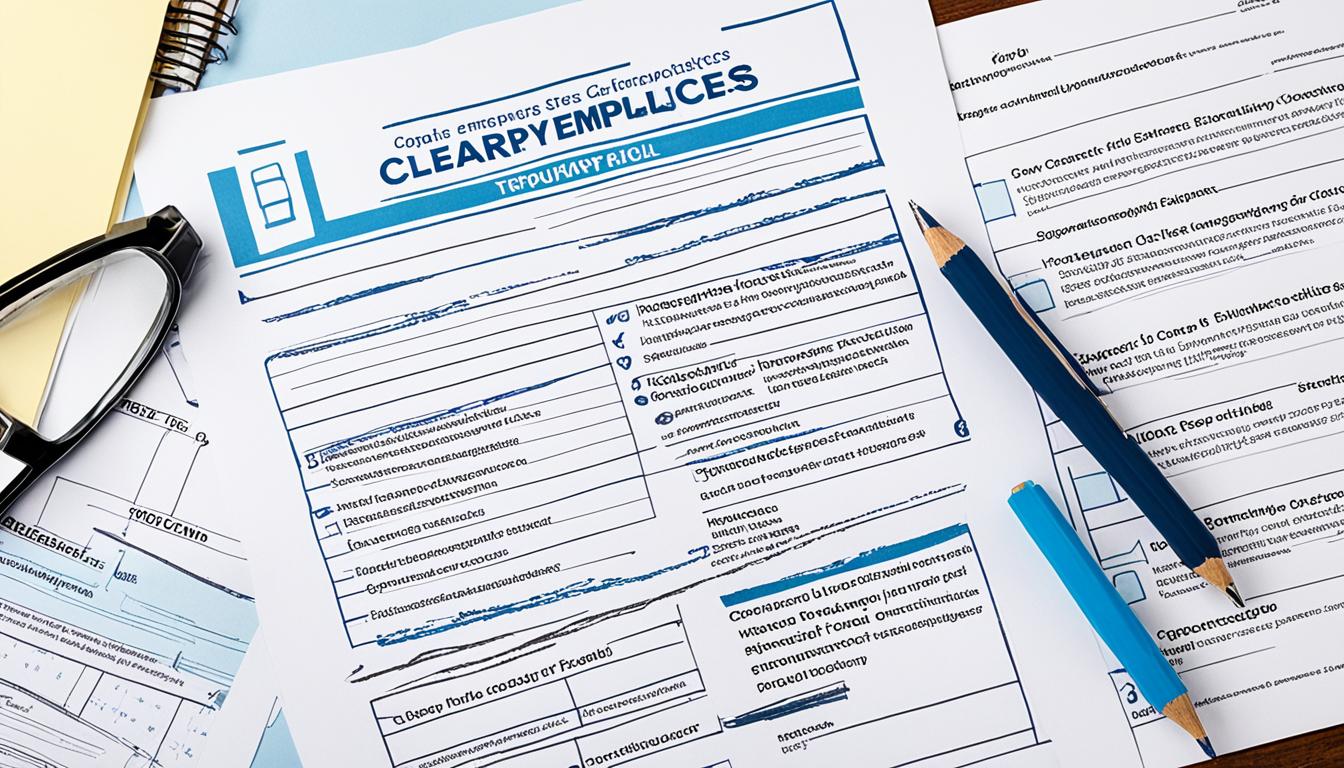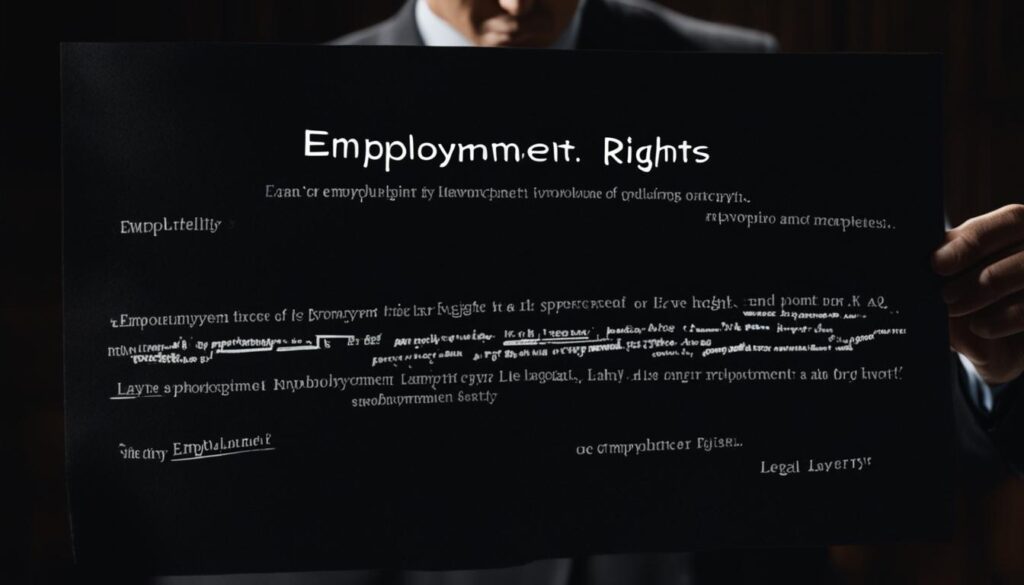In an age where flexibility is king, it might surprise you to learn that according to the United States Department of Labor, a job is considered temporary if it is set to last less than 12 months. This definition is reshaping how companies approach their workforce strategies, necessitating a savvy approach to how to hire temporary employees. If you’re looking to tap into this adaptable labor force, bolster your business during peak seasons, or fill in employment gaps, our staffing solutions guide paves the way for you to navigate the dynamic world of temporary staffing with confidence and legal foresight.
Whether you’re considering short-term gigs that might span a mere couple of days or seeking long-term temporary roles extending beyond six weeks, understanding the intricacies of this employment sector is crucial. With temporary employees potentially being eligible for retirement plans after 1,000 hours of service and state-mandated benefits like Workers’ Compensation, it pays to be informed. Our guide will empower you with tailored strategies and tips to guide you through effective and compliant temporary employee hiring processes.
Key Takeaways
- Recognize the legal definition of temporary employment as a job lasting less than 12 months.
- Discover strategies for how to hire temporary employees to meet the unique needs of your business.
- Understand the balance between flexibility and legal compliance within temporary staffing.
- Leverage our staffing solutions guide to navigate the hiring of temporary employees successfully.
- Learn about the benefits, such as the retirement plan eligibility, that temporary employees can accrue through consistent work.
- Get insights into temporary workers’ rehiring limits and the significance of the 1,000-hour service rule.
- Comprehend the types of compensation temporary staff may be entitled to, including potential eligibility for Workers’ Compensation.
Understanding the Role of Temporary Employees in Your Business
When you’re navigating the ever-fluctuating business landscape, the role of temporary employees can be a game changer. Especially during high demand and staffing shortages, temp workers become essential in maintaining productivity and achieving business goals. In this section, we’ll delve into the subtleties of temporary employment and how it can benefit your operation.

Identifying Periods of High Demand and Staffing Shortages
Certain times of the year or unforeseen events could lead to a surge in demand for your products or services. Whether it’s the holiday season rush or a sudden market opportunity, recognizing these periods in advance is critical. By understanding patterns and preparing to bring in additional help, you can ensure that your business doesn’t just survive, but thrives, without overburdening your permanent staff.
Defining Temporary Employment: Full-time, Part-time, and Temp-to-Hire
Temporary employment is not a one-size-fits-all solution. It spans a variety of formats, from full-time temporary positions for project-based work, part-time help during peak hours, to temp-to-hire roles that allow both you and the employee to assess fit before a permanent commitment. Selecting the right type of temporary employment is dependent on the specific needs of your business and the work to be done.
Evaluating the Pros and Cons of Temp Workers
Let’s weigh in on the pros and cons of temp workers. On the pro side, temp workers offer flexibility, reduce overhead costs, and can be a source of fresh perspectives and skills. Among the cons, training temporary staff requires time and resources, and the transient nature of their roles can impact team cohesion. Careful evaluation of these factors will help you make calculated decisions regarding temporary staffing and ensure the positives outweigh any potential challenges.
Strategizing the Recruitment of Temporary Employees
When it comes to the recruitment of temporary employees, a well-thought-out strategy can make all the difference. The right temporary employee recruitment strategies not only bolster your workforce during peak times but also bring in fresh talent that could be a potential asset in the long run. In this segment, you will learn the ropes of recruiting temporary staff effectively and efficiently.

To initiate an effective recruitment process, consider the specific needs of your business. Is there a seasonal peak you need to prepare for, or a project that requires a specialist touch? By acknowledging these factors, you can tailor your approach to the unique demands of your business, making your recruitment of temporary employees a precisely targeted endeavor.
Here’s a breakdown of practical steps to take:
- Design an Attractive Job Posting: The job listing is often the first interaction potential candidates have with your company. It’s essential to ensure it’s detailed, clear, and speaks to the values and culture of your workspace.
- Choose the Right Platforms: Whether it’s specialized job boards, staffing agencies, or online work platforms, selecting the right medium to post your job vacancy can help you tap into the right candidate pool.
- Evaluate the Candidates Thoroughly: While the recruitment process for temporary employees may be faster, it shouldn’t be less scrupulous. Ensure that you maintain high standards when vetting candidates for suitability and fit.
- Streamline the Onboarding Process: A systematic onboarding process not only makes the transition easier for your temporary employees but also for your existing staff who will be working with them.
Acquiring temporary staff doesn’t have to be a daunting task. With the right temporary employee recruitment strategies, you can secure the ideal candidates who are ready to contribute meaningfully to your company’s success, even on a short-term basis. After all, the recruitment of temporary employees might just be the flexible solution your business needs to meet its ever-changing demands.
How to Hire Temporary Employees With the Right Skills
Finding temporary workers who have the specific skills and experience your organization needs is a key pillar of successful hiring. Whether you’re looking to fill a short-term project or cater to seasonal demand, ensuring these employees are the right fit can save you both time and resources in the long run.
Determining Specific Skills and Experience Needed
Before posting that job ad, take a moment to identify the specific skills and experience required for the role. Analyze the tasks at hand and match them with the necessary competencies. Remember, a seasonal employee working the holiday rush will need different capabilities compared to a part-time professional covering a temporary vacancy. Clearly defining these needs upfront will streamline your selection process, helping you focus on candidates who are equipped to hit the ground running.
Writing Effective Job Descriptions for Temporary Positions
An effective job description is your first form of communication with potential candidates. Ensure that it includes the job title, a brief about your business, comprehensive job responsibilities, and the must-have job requirements. Using a job description template can make this process more efficient. Advertising on social media and niche job boards is also a great strategy to attract individuals with the specific skills and experience relevant to your field, while traditional methods like flyers still work wonders locally.
Setting Clear Expectations for the Duration of Employment
For hiring temporary employees, transparency is crucial. It’s important to articulate the duration of employment right from the start. Whether you’re hiring for a short-term project or seasonal work, having a mutual understanding prevents future complications. Such clarity not only fosters trust but also enables the candidate to align their professional goals with the temporal nature of the job. The job offer letter should reflect these details accurately, including the start date, compensation, and work hours.
Hiring temporary employees can contribute significantly to the dynamism and flexibility of your workforce. It’s about more than filling a spot; it’s about integrating skilled professionals who can propel your business forward, no matter the duration of their stay. Keep in mind the various types—from part-time to independent contractors—and choose the ones that best suit your operational demands and company culture. With the right approach, these temporary team members can make a long-lasting positive impact.
Selecting the Right Staffing Solution for Your Business
As businesses vie for top talent, the importance of selecting staffing solution that aligns with company goals and employee needs cannot be understated. In the rapidly evolving job market, companies must choose between traditional staffing agencies vs online work platforms, each offering unique value. Understanding these options, the advantages of flexible staffing, and the cost implications of staffing services are critical steps to harnessing the full potential of a temporary workforce.
Comparing Staffing Agencies and Online Work Platforms
Staffing agencies have long been the go-to for businesses seeking temporary employees; they provide a hands-on approach, with industry expertise and vetted talent pools. Agencies can alleviate the administrative burden of hiring, but often come with higher fees. On the flip side, online work platforms offer a more cost-effective, do-it-yourself model with wider access to candidates globally. However, this comes at the cost of time invested in candidate screening and potential quality variance.
Assessing the Advantages of Flexible Staffing Options
Embracing flexible staffing can be a game-changer, offering adaptability in managing workforce demand fluctuations. The scalability of contract workers can address temporary needs without the long-term overhead of traditional employees. Moreover, it permits businesses to respond swiftly to industry changes, while allowing access to specialized skills on a project basis.
Understanding the Cost Implications of Different Staffing Services
While evaluating staffing solutions, it’s paramount to consider the cost implications of staffing services. Direct hire costs include job postings, recruitment software, and HR personnel time. Indirect costs can soar when considering the value of unfilled positions and productivity loss. Whether choosing an agency or an online platform, weigh the initial investment against potential returns like decreased time-to-hire and reduced turnover.
Complying with Legal and Ethical Standards in Temporary Hiring
When it comes to the complexities of hiring and classifying temporary workers, many dental practices find themselves navigating a maze of regulations. Adhering to legal and ethical standards in temporary hiring compliance isn’t just good practice; it’s crucial to avoid hefty penalties. Such laws pertain to workplace safety, anti-harassment policies, and adherence to minimum wage statutes—ensuring that temporary employees receive equally fair treatment as permanent staff members.
In the realm of dental employment, for example, the pay cycle for temporary workers holds particular significance. Those on brief assignments, of just a single day or on a contingency basis, are legally entitled to daily remuneration. Ignoring these payroll requirements can escalate into civil and criminal repercussions, spotlighting the critical need for employers to be well-versed in their obligations, including those detailed in the Labor Code. In addition, the classification of these workers based on the ABC test criteria—deciding whether a W-2 form or a 1099 is appropriate—is a decision that carries with it substantial consequences for both your practice and the individual.
Ensuring smooth operation involves more than just compliance; it’s about adopting best practices that fortify your business. If you’re leveraging the expertise of a temporary agency, it’s essential to recognize the intricate nuances of being a joint employer. Clarity on the duration of the contractual engagement, diligence with payroll management, and keeping abreast of your shared responsibilities against discrimination and harassment are pillars of ethical temporary staffing. Above all, maintaining transparency with your temporary employees at every turn will help build trust and uphold the integrity of your hiring practices.
FAQ
What is the role of temporary employees in my business?
How can I identify periods of high demand and staffing shortages?
What are the different types of temporary employment?
What are the advantages and disadvantages of hiring temporary workers?
What are some strategies for recruiting temporary employees?
How can I determine the specific skills and experience needed for temporary positions?
How do I write effective job descriptions for temporary positions?
Why is it important to set clear expectations for the duration of employment for temporary workers?
What are the differences between staffing agencies and online work platforms for hiring temporary employees?
What are the advantages of flexible staffing options?
How can I understand the cost implications of different staffing services?
What legal and ethical standards should I comply with in temporary hiring?
Author
-

Sophia Alvarez brings extensive knowledge in employee management and strategic hiring practices. With over 15 years in HR, she has pioneered innovative approaches to talent acquisition and workforce planning.
View all posts



